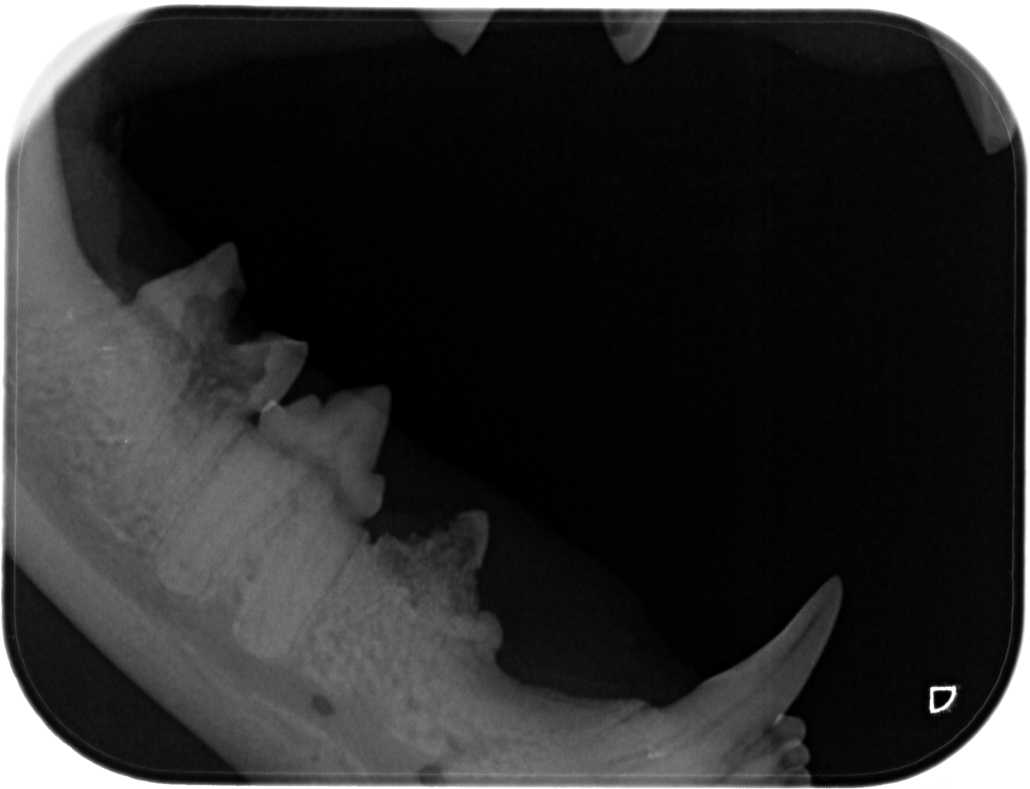Feline Tooth Resorption Lesions
What are resorption lesions?
Tooth resorption (TR) is a common and painful dental condition in adult cats and affects up to 25-75% of all cats. It often affects multiple permanent teeth and can occur anywhere on the tooth surface. It results in erosion of the enamel of the tooth causing pain, inflammation and infection.
What are the symptoms of resorption lesions?
- lethargy, sleeping a lot
- poor appetite, weight loss
- foul smelling breath, brown calculus accumulation on teeth, gingivitis
- nasal discharge, sneezing
- repetitive jaw movement when eating, drinking, grooming
- oral pain
- many cats will show no obvious symptoms
Cause of resorption lesions
Research indicates that this is a complex disease with several different causes including:
- diet: soft food, excessive Vitamin D intake
- genetics
- ongoing dental disease
Diagnosis
There are three ways to detect these lesions:
1) Visual -red spot of gum overlying lesion
-actual defect may be apparent
2) Probing -using a specific dental probe placed under the gum margin under anaesthetic
3) Radiology (x-rays)
-the most accurate way to diagnosis

Treatment
- thorough dental scale and polish to remove tartar and plaque
- comprehensive probing of gum margins to assess for any early lesions and full mouth dental radiography
- unfortunately there is no know effective treatment for teeth with TR and if lesions are noted the affected tooth must be extracted/removed
- regular 6 months dental checks to detect early lesions before significant pain occurs
Our Midland & Drovers Vet Hospitals are both accredited ISFM Cat Friendly Clinics.
The Cat Friendly Clinic programme is an internationally recognised assessment accreditation scheme which is open to any veterinary practice that cares for feline patients. There are certain requirements regarding design, equipment and facilities within the clinic, which must be met to achieve the standard. The clinic must also demonstrate that a high quality of care is provided to cats and that all staff understand cats and their needs in a clinic.
The benefit to the clinic is that not only will the scheme help to improve the clinical care of feline patients but may also increase the number of clients who are actively seeking a cat friendly clinic for their pet.




